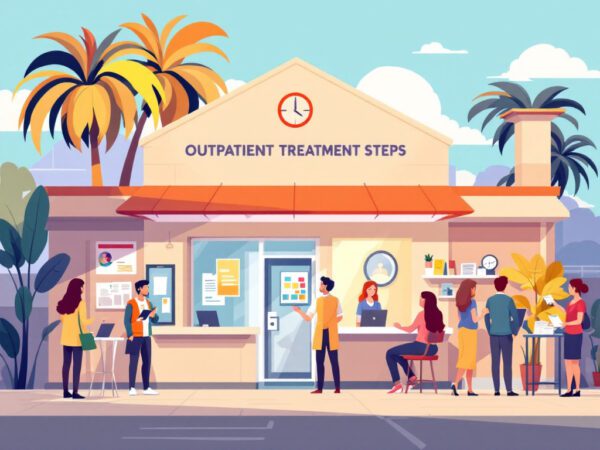Understanding Support Groups
Definition and Purpose
Support groups, including peer support groups, are gatherings of individuals facing similar challenges, such as addiction, illness, or significant life changes. These groups serve as a vital resource for those seeking to connect with others who understand their experiences. As outlined by the Mayo Clinic, support groups bridge the gap between medical treatment and emotional support, allowing members to share feelings, concerns, and treatment decisions.
The primary purpose of these groups is to foster a sense of community and mutual aid, allowing participants to support one another in navigating their challenges. Members benefit from shared understanding, which can validate their experiences and reduce feelings of isolation.
Benefits of Support Groups
Support groups offer a wide range of benefits for individuals seeking help and understanding. Some of the key benefits include:
| Benefit | Description |
|---|---|
| Emotional Support | Members can share their feelings and experiences, which can alleviate feelings of loneliness and anxiety. |
| Practical Advice | Participants provide real-life insights and strategies based on shared experiences, helping each other navigate challenges. |
| Enhanced Coping Skills | Engaging with others facing similar issues can help individuals develop healthier coping mechanisms. |
| Motivation and Accountability | Support groups encourage individuals to stay committed to their goals, whether related to health or personal development. |
| Skill Development | Groups may focus on skills related to managing specific conditions or improving well-being, enhancing self-care practices. |
According to the Community Tool Box, peer support groups provide an essential space for sharing experiences without professional guidance, encouraging collaboration, and fostering a sense of community.
For those considering support as part of their recovery or treatment journey, understanding the role and benefits of support groups is crucial. Exploring options like group therapy for addiction or substance abuse counseling can further enhance treatment outcomes.
Types of Support Groups
Understanding the various types of support groups can help us identify which one might be most beneficial for us or our loved ones. Two primary categories that we will explore are peer support groups and psychotherapy groups.
Peer Support Groups
Peer support groups, often referred to as self-help groups, are gatherings of individuals who share common experiences or challenges. These groups provide a space for members to share their personal stories, offer mutual support, and exchange insights based on firsthand experiences. The informal structure of peer support groups prioritizes solidarity, empathy, and open discussions, fostering a sense of community among participants (Community Tool Box).
| Feature | Description |
|---|---|
| Structure | Informal, less guidance from professionals |
| Focus | Shared experiences and mutual support |
| Guidance | Often led by individuals with lived experiences |
| Environment | Judgment-free and empathetic |
Peer support groups are especially valuable for individuals seeking reassurance and companionship as they navigate similar challenges. These groups encourage participants to share coping strategies and provide emotional support, making members feel less isolated in their struggles (LifeStance).
Psychotherapy Groups
In contrast, psychotherapy groups are typically led by licensed mental health professionals who guide discussions aimed at addressing specific psychological issues. These groups are structured to provide therapeutic interventions, allowing participants to work on their mental health through discussions, exercises, and various therapeutic modalities. The setting is more formal and focused on psychological healing.
| Feature | Description |
|---|---|
| Structure | Formal, led by licensed professionals |
| Focus | Therapeutic interventions for mental health |
| Guidance | Professional facilitation |
| Environment | Structured and therapeutic |
Psychotherapy groups can integrate various therapeutic approaches, such as cognitive behavioral therapy, dialectical behavior therapy, and mindfulness-based therapy. They create a space for deeper mental health healing and are often beneficial for individuals with chronic mental health conditions.
Choosing between peer support groups and psychotherapy groups depends on individual needs and circumstances. While peer support groups foster a community of shared experiences, psychotherapy groups offer professional guidance and therapeutic techniques aimed at mental well-being. By evaluating the benefits of both types, we can make informed decisions about which support system is best for us or our loved ones. For further information on substance abuse group therapy or group therapy addiction, we encourage seeking additional resources to aid in this important journey.
Peer Support vs. Psychotherapy
In the realm of mental health treatment, understanding the distinctions between peer support groups and psychotherapy can significantly influence the choice we make for ourselves or our loved ones. Both approaches offer valuable resources but cater to different needs.
Key Differences
Peer support groups and psychotherapy differ primarily in their structure and purpose.
| Feature | Peer Support Groups | Psychotherapy |
|---|---|---|
| Guidance Level | Facilitated by peers with shared experiences | Conducted by licensed mental health professionals |
| Focus | Shared experiences and mutual support | Individual mental health treatment and diagnosis |
| Structure | Informal and community-driven | Formal and structured sessions |
| Goals | Fostering community and understanding | Addressing specific mental health goals and therapies |
| Example Programs | Support for addiction recovery, mental wellness | Cognitive Behavioral Therapy, Dialectical Behavior Therapy |
Peer support groups operate on the principle that shared experience fosters understanding and healing, providing insights that can be invaluable in tackling personal and professional obstacles (The Collective). In contrast, psychotherapy offers a more targeted approach where licensed therapists utilize specific therapeutic techniques to treat mental health issues. This distinction helps us select the right support based on our specific needs and goals.
Selecting the Right Support
When deciding between peer support and psychotherapy, we should consider several factors:
-
Personal Comfort and Preference: Some individuals may feel more at ease sharing their experiences in a peer-led environment, while others might prefer the structured environment of therapy with a professional.
-
Type of Support Needed: If we seek general support and community, peer support groups like addiction recovery meetings can be highly beneficial. If we need help managing specific mental health conditions, such as anxiety or depression, we might benefit more from psychotherapy options like cognitive behavioral therapy or dialectical behavior therapy.
-
Goals: Understanding our objectives—whether it is simply to connect with others or to work through specific therapeutic goals—can guide our choice between these two forms of support.
-
Integration with Other Services: Peer support is often complementary to professional healthcare services, providing practical information about self-care and guidance in navigating the health system (NCBI PMC). Considering whether we need an integrated approach among various supports can also influence our decision.
Taking the time to understand the nuances between peer support groups and psychotherapy can enhance our journey towards healing and maintenance. It is essential to reflect on our unique needs and circumstances as we seek the best possible support for ourselves and our loved ones.
Effectiveness of Peer Support
Impact on Mental Health
Peer support groups have shown significant effectiveness in enhancing mental health. They serve as a valuable complement to professional healthcare services, delivering practical information about self-care and guidance for navigating health systems. Research indicates that peer support interventions can lead to improvements in goal setting, perceived competence, and a reduction in risky behaviors, particularly in managing chronic conditions related to mental health, such as addiction or depression (PMC).
| Benefits of Peer Support | Evidence of Effectiveness |
|---|---|
| Improved goal setting | Positive effects on patient activation and self-efficacy |
| Increased perceived competence | Enhanced self-care behaviors |
| Reduction of risky behaviors | Support for chronic disease management |
Participants in these programs often report feeling a sense of hope, motivation, and belonging. This increase in social support helps alleviate the stigma associated with various health conditions. The caring relationships formed in peer support environments contribute to an overall feeling of acceptance within a supportive community.
Importance of Shared Experiences
The value of shared experiences in peer support cannot be overstated. Participants find solace and understanding among peers who have faced similar challenges. They often express appreciation for the connection and empathy provided by others who have “been there.” This mutual understanding fosters an environment where individuals can openly discuss their struggles and triumphs, positively influencing their recovery process.
Studies have shown that these shared experiences can lead to a sense of normalcy and acceptance for participants, which is vital for overcoming social isolation. The feedback from individuals in peer support programs highlights the importance of feeling heard and validated, further encouraging their mental health journey (NCBI PMC).
In our quest to provide effective treatment options for addiction and mental health issues, incorporating peer support groups into recovery plans can increase the overall success rates and improve the well-being of individuals seeking change in their lives. For those looking for a supportive environment, Totality Treatment may be an excellent option to consider, as it emphasizes collaborative recovery paths that include peer support as an essential component of healing.
Challenges in Peer Support Programs
Peer support programs can play a vital role in fostering healing and connection, but they also encounter specific challenges that need to be addressed to maximize their effectiveness. We will explore two key challenges: emotional barriers and maintaining boundaries.
Emotional Barriers
Many individuals participating in peer support groups face emotional barriers, which can hinder their ability to engage fully with the support process. Peer supporters themselves may experience emotional challenges stemming from their own recovery journeys, such as reliving past traumas or feelings of inadequacy when helping others. This can lead to a situation where the peer supporter feels overwhelmed, affecting their ability to provide effective guidance and support.
To combat these emotional barriers, programs must ensure careful selection, training, and continuous supervision of peer supporters. This includes providing them with the appropriate resources and coping strategies to handle their emotional responses effectively. By doing so, they can better support the participants in the program. Peer support is often seen as complementary to professional healthcare services, and understanding these emotional dynamics is essential for program success (PMC).
Maintaining Boundaries
Another challenge in peer support programs is maintaining appropriate boundaries between peer supporters and the individuals seeking help. While a close connection can be beneficial, a lack of boundaries can lead to emotional dependency or blurred roles. Peer supporters may find it difficult to separate their experiences from those of the peers they are supporting, which can impede the effectiveness of the support provided.
To maintain effective boundaries, it is crucial to establish clear guidelines for interactions within the support group and to encourage open communication. This not only helps prevent boundary issues but also ensures that the participants understand the purpose and limitations of peer support. Skilled facilitators play a vital role in guiding these dynamics, promoting an environment of honesty, empathy, and compassion among participants (NAMI).
In summary, addressing these challenges—emotional barriers and the need for boundaries—ensures that peer support programs remain effective and continue to provide meaningful assistance in the journey to recovery. By closely monitoring these aspects, we can create a supportive environment in which all participants can thrive.
Peer Support for Health Management
Improving Self-Care
Engaging in peer support groups can significantly enhance our ability to take care of ourselves. These programs offer both informational and psychosocial support, which helps to lower feelings of social isolation and connect us to others who share similar health experiences. By interacting with peers who understand our challenges, we can gain valuable insights and practical advice about managing our health more effectively.
Studies indicate that peer support interventions can lead to improved goal setting, perceived competence, and reduced risky behaviors. Specifically, they positively impact our self-efficacy and self-care behaviors, which are essential for chronic disease management. Such improvement enables us to feel more empowered in managing our health conditions.
| Benefit | Description |
|---|---|
| Improved Self-Care Behaviors | Increased understanding and implementation of self-care strategies. |
| Enhanced Goal Setting | Setting more achievable and realistic health goals with peer encouragement. |
| Increased Self-Efficacy | Higher confidence in managing personal health issues due to shared experiences. |
Community Building
Peer support programs also play a crucial role in fostering a sense of community among participants. These groups are built on mutual trust and understanding, where individuals can share their experiences without fear of judgment. This environment contributes to feelings of hope, support, and motivation—elements that are vital in combating the social isolation often associated with health conditions.
Participants appreciate the caring connections made within these groups, leading to a greater sense of belonging. This supportive community contributes to feelings of normalcy, acceptance, and connection, which are essential for emotional well-being (NCBI PMC). This shared experience not only helps us navigate our health journeys but also strengthens our resolve to make healthier choices.
For further information on group dynamics and support in managing addiction, consider exploring group therapy addiction and substance abuse group therapy. By participating in peer support groups, we not only improve our self-care but also build a community that stands together in the journey toward better health.















